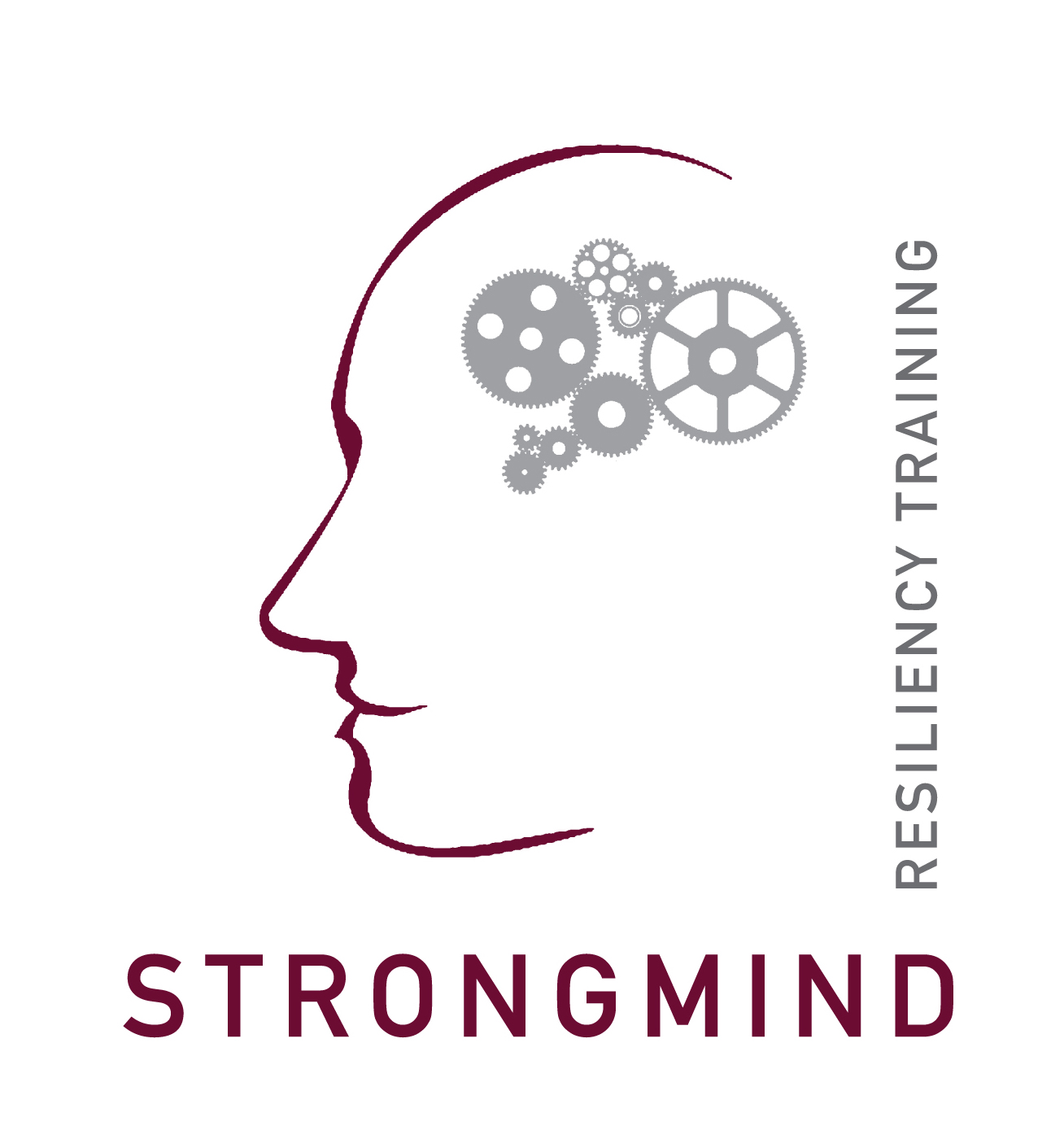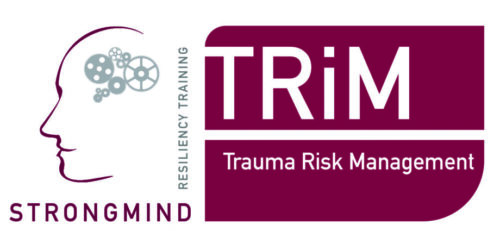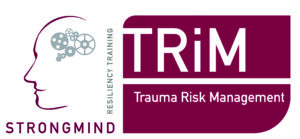
Trauma Risk Management Overview TRiM Training, TRiM Assessment
Trauma Risk Management (TRiM) Training Course
What is TRiM?
Trauma Risk Management (TRiM) is a structured, peer-delivered framework designed to support staff following critical incidents and traumatic events. Originally developed within the military, TRiM is now widely adopted across sectors such as emergency services, healthcare, government, and NGOs. It helps organisations implement psychologically informed, proactive systems for safeguarding staff and supporting mental health in the workplace.
TRiM is not counselling or therapy. Instead, it is an evidence-based trauma management training course designed to equip trained peers (TRiM Practitioners) to assess and monitor colleagues exposed to trauma, enabling early intervention and referral if needed.
Who Needs TRiM?
Trauma Risk Management (TRiM) is essential for individuals and organisations operating in high-stress, high-risk, or trauma-exposed environments. Whether responding to critical incidents, managing emotionally intense workloads, or supporting others through crisis, TRiM equips non-clinical personnel with the skills to recognise distress, provide structured peer support, and promote recovery following traumatic events.
TRiM is especially relevant for:
- Emergency Services and First Responders
Police officers, firefighters, paramedics, and other frontline emergency personnel are regularly exposed to traumatic incidents. TRiM training helps these professionals process what they’ve experienced, monitor their mental health, and support peers who may be struggling after an event.
- Healthcare and Mental Health Professionals
Nurses, doctors, and mental health practitioners often witness suffering, loss, and complex trauma. TRiM offers a structured framework to support colleagues in emotionally charged roles while maintaining psychological safety and professional wellbeing.
- Corporate and Operational Workforces
TRiM isn’t just for frontline responders. Corporate and office-based teams involved in high-pressure roles—such as crisis communications, legal services, regulatory work, or financial risk—can also experience secondary trauma or emotional overload. TRiM can help identify early warning signs and build a trauma-informed workplace culture.
- Safeguarding Leads, HR Teams, and Wellbeing Managers
Professionals tasked with overseeing staff wellbeing, managing disclosures, or supporting teams after workplace incidents can use TRiM to create a consistent and compassionate response protocol. This approach ensures no colleague is left unsupported during or after a traumatic event.
- Charities, NGOs, and Humanitarian Workers
Those working in humanitarian aid, victim support, and crisis response are regularly exposed to distressing content and environments. TRiM equips these teams with tools to manage cumulative stress and reduce the risk of burnout and secondary trauma.
- Any Organisation Facing Critical Incidents or Cumulative Stress
Whether dealing with one-off traumatic events or long-term exposure to distress, any organisation concerned with mental health in the workplace can benefit from TRiM training. It strengthens internal support networks, reinforces psychological resilience, and contributes to a safer, more responsive workplace environment.
TRiM Practitioner Training Course
Our TRiM Practitioner course is a 2-day, intensive programme that combines theory, practical exercises, and real-world scenarios to develop key skills. TRiM Practitioners learn to:
- Understand the psychological impact of traumatic events
- Conduct structured TRiM risk assessments
- Deliver post-incident support through informal but structured interviews
- Apply mental health safeguarding best practices
- Monitor peer wellbeing over time
Participants complete practical assessments, including bespoke role-play activities, to gain CPD-accredited certification.
TRiM Risk Assessments
Ongoing Monitoring & Risk Assessment
A core strength of the TRiM (Trauma Risk Management) approach lies in its structured, ongoing monitoring process, which helps identify individuals at risk and ensures timely, appropriate support.
TRiM includes two key peer-led risk assessments:
- Initial Assessment (72 Hours Post-Incident):
Conducted approximately three days after a traumatic event, this first risk assessment allows trained TRiM Practitioners to evaluate immediate psychological risk. It helps identify individuals who may be struggling to cope in the short term and who may benefit from additional observation or early signposting to professional support. - Follow-Up Assessment (One Month Post-Incident):
A second assessment is carried out around four weeks later. This session is designed to review the individual’s emotional recovery and assess whether their wellbeing has improved, remained stable, or deteriorated. The comparison between the two assessments helps determine whether further intervention is needed and guides decisions about escalation or continued peer support.
These assessments are informal but guided by evidence-based risk factors, allowing trained peers to conduct them without clinical expertise. The TRiM framework encourages open conversation, reduces stigma, and ensures those affected by trauma are not left unsupported in the critical weeks following a distressing event.

TRiM Managers
TRiM Manager Course
The TRiM Manager course is an additional 2-day training designed for those overseeing TRiM implementation. TRiM Managers must first be qualified Practitioners.
Training includes:
- Planning organisational responses to traumatic incidents
- Supervising and mentoring TRiM Practitioners
- Coordinating follow-ups and maintaining documentation
- Promoting a culture of resilience and trauma-informed leadership
- Acting as a divisional lead and supporting regional deployment
TRiM Refresher Training
To maintain confidence and effectiveness in delivering trauma risk management, refresher training is strongly recommended on an annual basis. While TRiM Managers are qualified to conduct limited in-house refresher sessions for Practitioners, skills can fade over time—especially in high-pressure environments.
Our TRiM Refresher Training is a one-day CPD-accredited course designed to reinforce key principles and ensure that staff remain ready to conduct trauma risk assessments effectively. This refresher can be arranged at short notice, particularly when upcoming critical incidents or real-time risk assessments are expected. For maximum flexibility, training can be delivered virtually, with no impact on your CPD status.
Flexible Training Delivery – UK and Worldwide
Strongmind Resiliency Training offers bespoke TRiM training solutions to suit the diverse needs of organisations operating across different sectors and settings. Our delivery formats include:
- In-person training at your organisation’s premises
- Live virtual training via secure online platforms
- Flexible e-learning modules, ideal for those seeking an online training course or e-learning version
This multi-format approach ensures that trauma management training is accessible, scalable, and relevant—whether you’re a small non-profit or a large international agency. Wherever you are in the UK or globally, we can deliver training that fits your context and enhances workplace resilience.
Available TRiM Courses
Why Choose Strongmind Resiliency Training?
Strongmind is a trusted provider of TRiM training in the UK, working with organisations across government, healthcare, law enforcement, and more. Our tailored TRiM solutions are:
- CPD-accredited
- Delivered in-person, virtually, or via e-learning trauma courses
- Adapted to organisational needs and sector-specific risk
We are proud to offer bespoke trauma management training courses that protect staff, improve outcomes, and strengthen workplace culture.
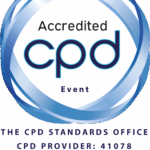
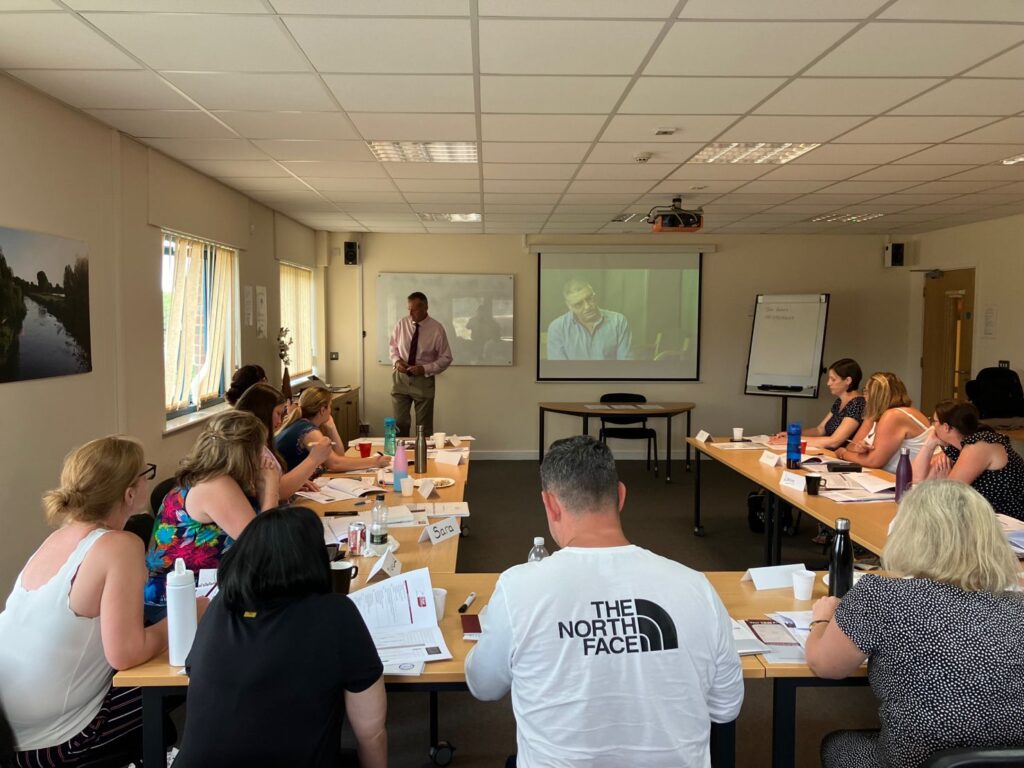
Transform Your Approach to Trauma Support
Empower your teams with TRiM—an essential system for managing traumatic stress and building lasting workplace resilience. Whether you need on-site delivery, virtual training, or bespoke packages, Strongmind is here to help.
Contact us today to discuss how our TRiM training can support your staff and meet your organisation’s wellbeing objectives.
Transform Your Workplace
Real Stories of TRiM Success


